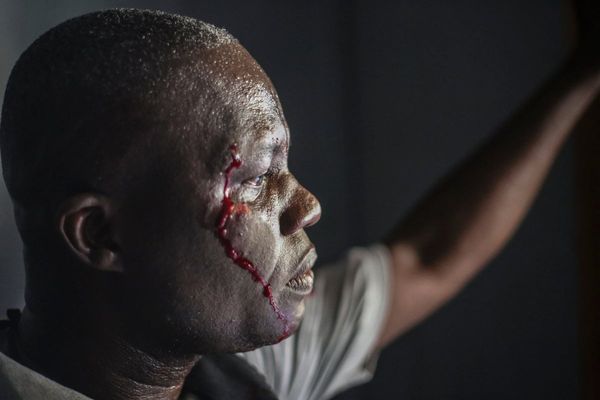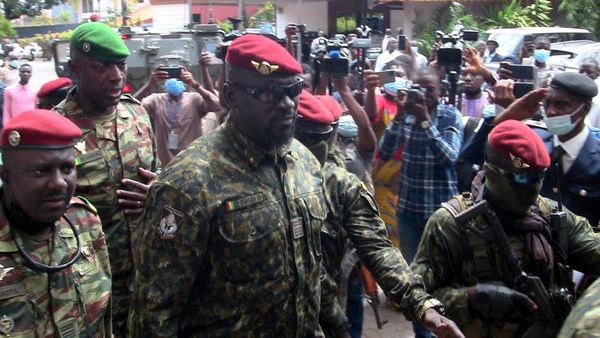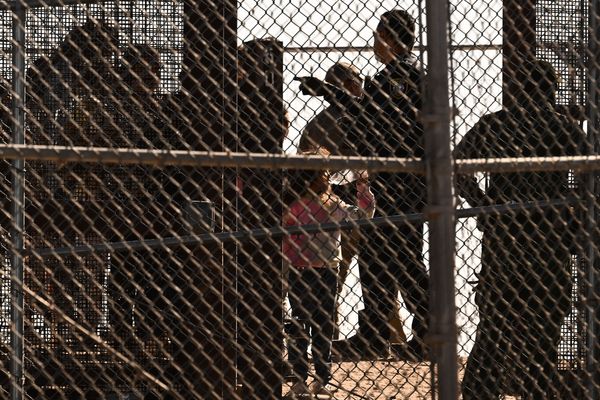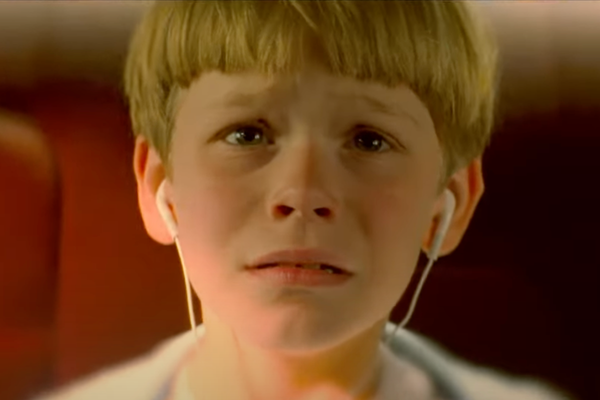
POWERFUL
The Albanese government says we’ll be using gas — a fossil fuel — to 2050 and beyond as an energy source that underpins renewables, power manufacturing, and other countries’ energy transitions. The AFR reports Resources Minister Madeleine King will release the Future Gas Strategy today, which is “based on facts and data, not ideology or wishful thinking”. (Meanwhile, in not-unrelated news, WA’s Jarrah forests just had the worst large-scale drought in recorded history). The strategy will include the use of carbon capture and storage (CCS) and measures to reduce methane. Last year the Climate Council noted CCS has not been trialled and tested anywhere in the world at the scale needed to beat the climate crisis, while Rod Campbell at the Australia Institute found Australia emits almost 11 times the amount of CO2 captured by CCS worldwide.
Staying in WA and Nine says it was forced to stop printing the AFR in Perth because billionaire Kerry Stokes’ Seven West Media doubled the cost of printing it. The Seven-owned Colourpress — which AFR notes is the only printer of major newspapers in WA — reportedly didn’t double the cost of printing The Australian, however. AFR editor in chief Michael Stutchbury called it an “uncompetitive abuse of market power” but Seven retorted that it was merely a commercial decision. Meanwhile, the rest of us are going to be rich next year according to the budget, with higher wages, tax cuts and reduced inflation increasing household disposable income by 3.5%. There’ll probably be no change to JobSeeker, Guardian Australia says, but Commonwealth rent assistance and the energy relief program may be of some help to those on unemployment benefits.
PROTESTATIONS
Education Minister Jason Clare said the slogan “from the river to the sea [Palestine will be free]” brings to mind the idea of one state, which he does not support. In a statement to Sky News Australia, Clare said he should have been clearer when he said it meant different things to different people, adding there’s “no place for hate or the poison of antisemitism in our universities or anywhere else”. Meanwhile, The Executive Council of Australian Jewry wrote to Foreign Affairs Minister Penny Wong to urge her not to reward “acts of mass terrorism” by voting to admit Palestine as a full member of the UN, news.com.au reports. “It is clear that a Palestinian state cannot be declared into existence,” the peak organisation said. It’s still not clear how Australia plans to vote, but The Australian ($) predicts we won’t say nay (we can abstain though).
Meanwhile, Monash University’s leadership has ordered the removal of a banner that reads “Zionists not welcome”, the SMH reports, because it “likely constitutes harassment and/or vilification”. Clare said the university regulator had set up a team to monitor the protests and senior police are working with university leaders in new critical incident response teams in Sydney and Melbourne. A pro-Palestine march at Monash was called off on Wednesday after tensions between protesters. The Australian ($) reports pro-Palestine activist Mohammad Sharab was filmed calling Israel “a terrorist state” and Zionism a “terrorist entity” — the paper says he was a “visitor” on campus. Police are also investigating footage of a Jewish student wrapping himself in the Israeli flag and sitting within the pro-Palestinian protest space.
HEALTH OF A NATION
We still haven’t seen the medical advice that underpinned Victoria’s curfews or 5km movement restrictions during the pandemic, former health minister Greg Hunt says. He wrote in a submission to the government’s COVID-19 inquiry that “unilateral decisions” were taken outside the national cabinet framework, The Australian ($) reports, and our individual freedoms are at risk if the states don’t agree to a national code that requires medical advice be published during restrictions. Hunt also said resident deaths in aged care were up 163% since Labor took government and called for a five-year plan. It comes as AstraZeneca has started a global withdrawal of its COVID-19 vaccine because of dwindling demand, though the ABC notes it hasn’t been available here since March 2023.
Meanwhile, federal spending on family, domestic and sexual violence has surged from $2 million in 2013/14 to $644 million this financial year, the SMH reports, yet 28 women have been killed in less than five months year compared to 34 in total last year. (The spending is peanuts compared to the $14-18 billion the federal government announced for defence base upgrades in the NT, Queensland, and WA, as The NT News reports). Anyway — Australia’s inaugural DV commissioner Micaela Cronin convened 70 experts for emergency talks this week — since she started organising them two weeks ago, four more women have been killed. It comes as a woman was allegedly stabbed yesterday in Sydney in a suspected DV incident, Sky News Australia reports. Cronin will tell the attorney-general and police commissioner in each state and territory that they must do death reviews and give the data to a national body.
ON A LIGHTER NOTE
We have many problems in life until we have a serious health problem, and then we have just one problem. Staring out onto a sports field from his hospital bed, 66-year-old Michael Salter held a hand to his battered heart. Just weeks ago he’d been in great health — now, he realised, he faced a long recovery from heart surgery. Anh Nguyen sat by him. “What is most challenging for you at the moment?” she asked. Salter thought, and responded “The sense of the unknown”. Nguyen nodded. She hears that a lot as a spiritual care worker, one of a growing number helping people grapple with the big questions. She describes her work as mostly listening, providing a “safe space to release that distress and emotion, and give them strength to move forward”. And it works — one study found 65% of patients reported a better recovery.
Nguyen used to work in IT, but her father’s death in 2000 brought her life to a sudden, shuddering standstill. Over time, a grief counsellor helped her pass the complex emotions through her heart, and she was so moved by the experience that she began studying psychology herself. This job is truly a “calling”, Nguyen tells SBS, describing her gratitude for the opportunity to help people find “their strength and resilience and hope” through a holistic (non-religious) approach. And she’s absolutely brilliant at it, her boss says, describing her as empathetic and kind. “She makes people feel comfortable,” he said simply. Some patients have an army of friends and family around them as they battle a health issue. But others, for whatever reason, are quite alone. Except, thankfully, for Nguyen.
Hoping you feel cared for today.
SAY WHAT?
We wouldn’t tolerate it if it was a campus protest against people of Indigenous heritage or people of the Islamic community or people of tall stature.
Peter Dutton
Comparing protests at universities calling for peace in Gaza to a protest against tall people wasn’t exactly as compelling as the opposition leader may have hoped.
CRIKEY RECAP
“Traditionally, the idea that France wouldn’t have a big enough workforce would have seemed absurd. For much of the past 30 years, and particularly after the financial crisis, French unemployment was stuck above 9%, and routinely above 10% in the early part of last decade.
“But under Macron, it’s fallen from above 9% when he was elected in 2017 to around 7.3% now. France’s defence manufacturing sector is already plagued by serious skill shortages. Labour markets have been especially tight since the pandemic.”
“Despite these increases in followers, however, Sky News Australia’s online influence is rapidly deteriorating. In March, Sky News Australia dropped out of the top 20 Australian news websites, according to Ipsos rankings, after peaking as high as 11th in May 2023.
“Meanwhile, on Facebook, figures from analytics tool CrowdTangle show that while its follower counts continue to rise, weekly interactions sit at around 200,000, a shadow of the brand’s performance in 2020 and less than half of its 2023 peak of around 500,000.”
“It’s time for our leaders to make a choice (albeit absurdly overdue). The choice to take men’s violence against women seriously. This begins with the choice to meaningfully invest in frontline services and ensure state and territory governments are accountable to distribute these resources in a timely and appropriate manner.
“The NSW government’s recent announcement of a $230 million emergency domestic violence package is a welcome example of this commitment that needs to be echoed by other jurisdictions with haste.”
READ ALL ABOUT IT
Turkey launches probe after Boeing plane lands without front landing gear (Al Jazeera)
US reveals it paused shipment of bombs for Israel over Rafah concerns (BBC)
[Robert F. Kennedy Jr.] says worm ‘got into my brain and ate a portion of it’ (CNN)
EU reaches deal on using profits from Russia’s frozen assets for Ukraine (The Guardian)
What is the Bishnoi gang and how could it be linked to Hardeep Singh Nijjar’s killing? (CBC)
What is former Iranian leader Ahmadinejad doing on a secret trip to Budapest? (euronews)
Stormy Daniels delivers intense testimony in Trump’s trial: 6 takeaways (The New York Times) ($)
THE COMMENTARIAT
Albanese’s troubled critical minerals dream — Jennifer Hewett (The AFR): “But the collapse in prices for nickel, lithium and rare earths has dented last year’s optimism about WA hosting a new boom in critical minerals and further minerals processing — key ingredients in the green transition. The mining industry has politely welcomed the government’s investment in further mapping, led by Geoscience Australia, to help identify opportunities for mineral deposit development or for carbon capture and storage projects, particularly in under-explored and remote areas. The catch is that the $560 million to be spent over a decade can be no more than a modest and drawn-out foundation for an increasingly obvious and urgent gap in the critical minerals industry.
“Iron ore remains the massively profitable powerhouse that underpins the West Australian economy — and Jim Chalmers’ federal budget. But rather than the mining land rush underway this time last year, many lithium, nickel and rare earth mines are now being closed, further development is on indefinite hold, and plans for processing are being scaled back or cancelled because projects can’t be competitive at current prices. It is not just smaller players contemplating a messy and expensive end to ambitions that rested on the promise that all these critical minerals would be needed by a decarbonising world. In February, BHP wrote off the value of its nickel assets by $5.4 billion pre-tax. It is considering mothballing its entire WA nickel division after the global market responded to a new abundance of much cheaper, but still high quality, Indonesian nickel.”
A Sydney council has banned books with same-sex parents from its libraries. But since when did councils ban books? — Sarah Mokrzycki (The Conversation): “Australia has a long and complicated history with censorship and book banning. The Trade and Customs Act of 1901 controlled the importation of books for most of the 20th century (and banned plenty along the way, including The Catcher in the Rye). The Australian Classification Board began in 1970. If school boards, community members, or even politicians raise concerns about books, the board — a statutory body — makes a decision about the book’s suitability to be publicly available. The review board consists of a convenor, a deputy convenor and board members, and operates on a ‘majority-based decision-making procedure’.
“It famously struggled with classifying the young adult graphic novel Gender Queer: A memoir by Maia Kobabe, challenged in 2023 by conservative commentator Bernard Gaynor, and ultimately found ‘appropriate for its intended audience’ after appeal … But in America, such library bans are apparently escalating. The key difference is that American libraries are run by their own boards, which dictate library policy. There have been reports of libraries ‘stacking’ boards with ‘conservative appointees’ and closing board meetings to the public. In the US, attempts to censor books at public libraries increased by 92% from 2022 to 2023, accounting for about 46% of all book challenges in the US in 2023.”
HOLD THE FRONT PAGE

WHAT’S ON TODAY
Online
-
Senator Barbara Pocock, as well as The Australia Institute’s Bill Browne and Ebony Bennett will speak about the relationship between governments and consultants in a webinar.
Eora Nation Country (also known as Sydney)
-
Author Erin Gough will speak about her new book, Into The Mouth of The Wolf, at Gleebooks.








